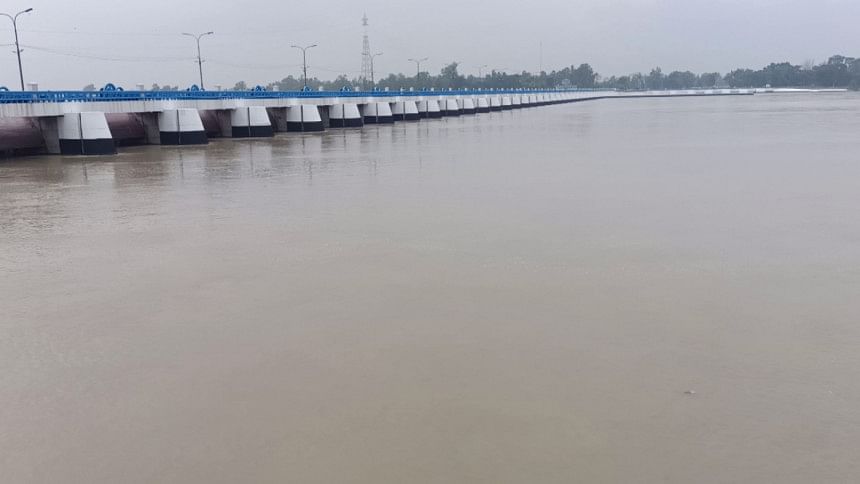Preserve rivers by adopting equitable water-sharing policies

Speakers at an event today emphasised equitable water-sharing policies to preserve the international rivers flowing through Bangladesh and to ensure their natural flow.
"Despite the transformative impacts of globalisation, our way of thinking remains unchanged. It is crucial to reimagine our approach within the broader global context. In today's multifaceted world, there is no room for reverting to colonial mentalities," said Prof Imtiaz Ahmed, executive director of the Centre for Alternatives.
"We must embrace innovative approaches and think beyond conventional paradigms," he added.
He made the remarks during the inaugural ceremony of the two-day 10th International Water Conference held in Kuakata, Patuakhali, organised by ActionAid Bangladesh with the theme "Water Geopolitics and the Future of Oceans."
Addressing Bangladesh's water-sharing relations with India, Myanmar, and China, Prof Imtiaz pointed out that there are new opportunities and hopes to overcome these challenges.
"Negotiations over water-sharing with India should expand beyond bilateral talks to include China and other stakeholders. For instance, when we sought India's cooperation over the Teesta River, they were unresponsive. Now, with China constructing dams, they are inviting us to the discussion table," he said.
Referring to the Brahmaputra and Teesta rivers, John Dore, lead specialist for Water, Energy, and Climate from the Australian Department of Foreign Affairs and Trade said, "The recommendations from the Mekong River Commission can be considered to ensure the shared water flow of these rivers. Collaborative research and communication should be enhanced in this regard."
Farah Kabir, country director of ActionAid Bangladesh, said that rivers are living entities, and they are currently in a critical state.
"Without coordinated efforts, the adverse effects of mismanagement will intensify. Rivers do not belong to any one individual or entity," she said.
"To ensure the rights of rivers and water resources, transboundary nations must collaborate, with a strong focus on fairness in water-sharing. Only then can we save our rivers and establish equity in livelihoods," she added.
On the first day of the conference, sessions were held on topics including "The Future of Teesta and Border Rivers" and "Climate Change and Local Innovations."

 For all latest news, follow The Daily Star's Google News channel.
For all latest news, follow The Daily Star's Google News channel. 



Comments